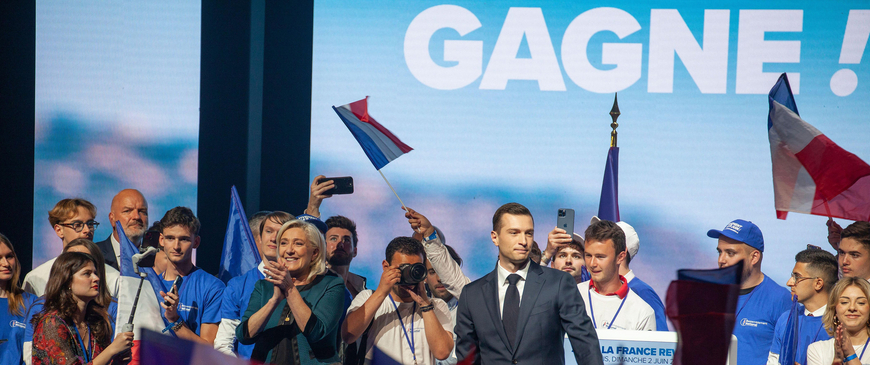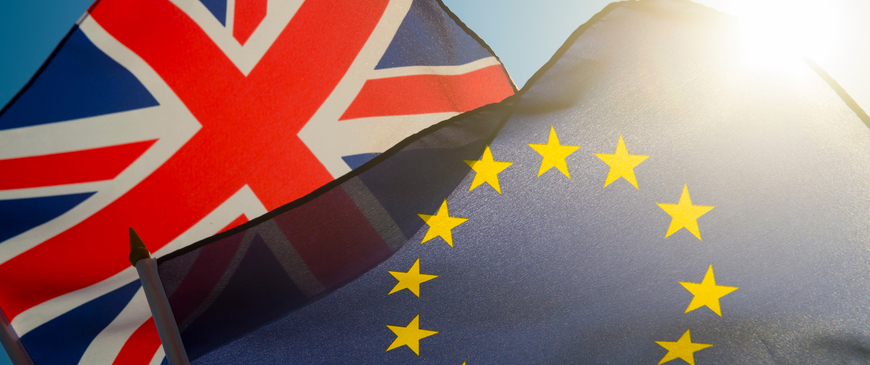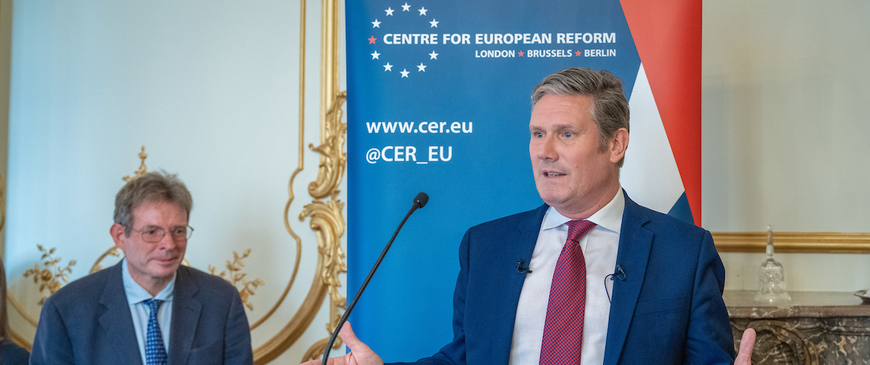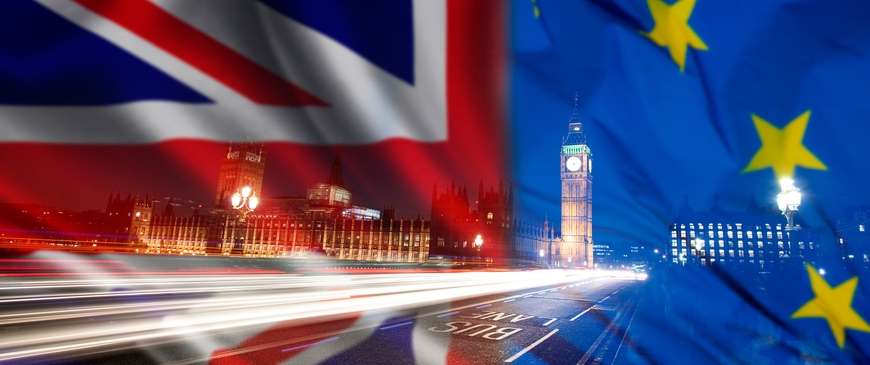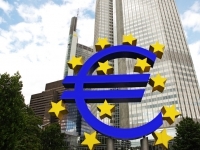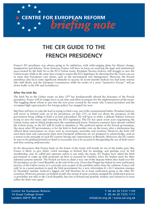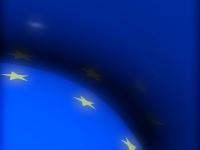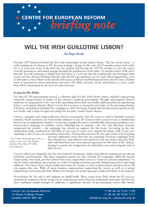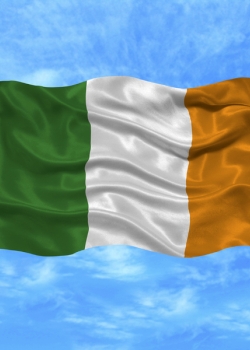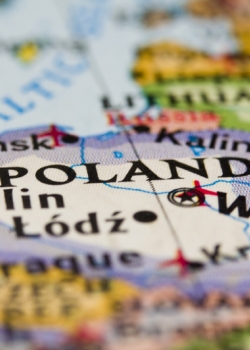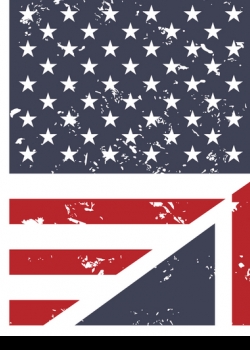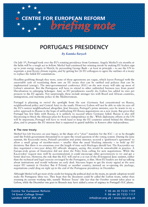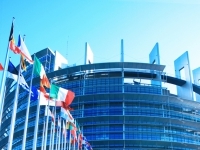Britain & EU member-states
In defence of Anglo-Saxon capitalism
29 September 2008
Those who never liked ‘Anglo-Saxon’ capitalism are feeling smug. Marxists, fans of ‘Rhineland’ capitalism and those who simply cannot stand American power are crowing.
The CER guide to the French presidency
04 July 2008
France's EU presidency was always going to be ambitious, with wideranging plans for climate change, immigration and defence. Now, however, France will have to focus on resolving the legal and institutional mess created by the Irish No to the EU's Lisbon treaty. President Nicolas Sarkozy will struggle to save the...
Tough choices to avoid euro-paralysis
19 June 2008
The Irish did the wrong thing for the right reasons in their referendum on the Lisbon treaty. Voters rejected an international treaty, the benefits of which did not seem to merit a change to the country's constitution.
Will the Irish guillotine Lisbon?
04 June 2008
On 12 June 2008 Ireland will hold the EU's only referendum on the Lisbon Treaty. With the campaign entering its decisive phase, polls indicate that the vote could be dramatically close with turnout determining the result.
Poland’s bold new foreign policy
01 February 2008
For the rest of Europe, the worst thing about Poland’s Law and Justice government, led by Jaroslaw Kaczynski, was its foreign policy. His approach towards Russia, Germany and (sometimes) the EU – supported by his twin brother, President Lech Kaczynski – was confrontational.
Bad omens loom over Irish referendum
01 February 2008
Ireland's voters have a crucial decision to make on the future of the EU – in May or June this year – when they vote in the only referendum on the Treaty of Lisbon.
Issue 58 - 2008
25 January 2008
- My five ideas for Europe's future, Nick Butler
- Bad omens loom over Irish referendum, Hugo Brady
- Poland’s bold new foreign policy, Charles Grant
Poland's bold new foreign policy
17 January 2008
As far as the rest of Europe was concerned, the worst thing about Poland’s Law and Justice government, led by Jaroslaw Kaczynski (and supported by his twin brother, President Lech Kaczynski), was its foreign policy. The twins’ attitude towards Russia, Germany and – sometimes – the EU was confrontational. The Civic Platform government that took over in October is shifting Poland’s foreign policy. Its ministers often speak to the Germans without reminding them of the war. More controversially, the government is trying to build bridges with Russia. Moscow has lifted its ban on meat exports from Poland, while Warsaw has consulted the Russians about the Bush administration’s plans to deploy missile defence systems in Poland. Prime Minister Donald Tusk is much less enthusiastic than the Kaczynskis about missile defence
Politics, Sarkozy and the euro
03 December 2007
Not long after its launch, the euro was famously dismissed by a disgruntled currency trader as a “toilet currency”. How things have changed. Since 2003, the euro’s external value has soared, particularly against the US dollar.
Issue 57 - 2008
30 November 2007
- Politics, Sarkozy and the euro, Philip Whyte
- Europe’s defence and its new security strategy, Tomas Valasek
- The EU must stand firm on Bosnia, Charles Grant, Tomas Valasek
Sarkonomics – a user’s guide
08 November 2007
President Sarkozy is frequently portrayed in France and elsewhere as an “economic liberal”. This is a mistake. He is undoubtedly an economic reformer prepared to take on the privileges of labour market “insiders”; but he retains a French dirigiste’s belief in an active role for the state in economic development. This manifests itself in several areas, including his support for “national champions”, his mercantilist vision of international trade, and his belief that governments should have greater influence over the European Central Bank (ECB).
Yes to a referendum, but not on this treaty
01 October 2007
Britain is divided over the EU’s new Reform Treaty. The eurosceptic lobby is ratcheting up a well-funded, media-savvy campaign to pressure the government into holding a referendum on the treaty.
Sarkozy on America and the world
29 August 2007
In his first 100 days in the office, Nicolas Sarkozy turned France’s domestic political scene on its head. He trounced and marginalised the far-right National Front in the May presidential elections.
Poland’s poll and the EU treaty
24 August 2007
Poland’s early election may coincide with the last days of talks on the new EU Reform Treaty. Although the Kaczynskis are unlikely to reopen a deal agreed in June on the treaty's content, last minute political posturing for a home audience could delay the text being signed off.
Europe in the US-UK special relationship
02 August 2007
Gordon Brown scarcely mentioned Europe during his visit to the United States, certainly much less than Tony Blair used to. That is understandable.
Of mice, men and the language of EU reform
18 July 2007
Beware the humourless, especially in politics. At a CER/Clifford Chance conference last week, Guiliano Amato, Italy’s interior minister, pronounced that the Reform Treaty was a return to familiar territory for the EU: an unreadable treaty.
Portugal's presidency
09 July 2007
On 1 July 2007, Portugal took over the EU's rotating presidency from Germany. Angela Merkel's six months at the helm will be a tough act to follow.
Why Europeans don’t have babies
29 June 2007
Europeans live longer, work less and have fewer babies. On current trends, the EU will not have enough workers to pay for its growing number of pensioners.
What the summit says about the EU
26 June 2007
At 4.30am on Saturday 23rd June, after 36 hours of wrangling, EU leaders agreed on a deal to revive parts of the failed EU constitutional treaty.
What do you do with a problem like Poland?
21 June 2007
Behind the scenes, Angela Merkel has striven to get agreement on a mandate for treaty change ahead of this week’s EU summit. She has by now dealt with concerns of most of the key players in the debate – France, the Netherlands and the UK.

